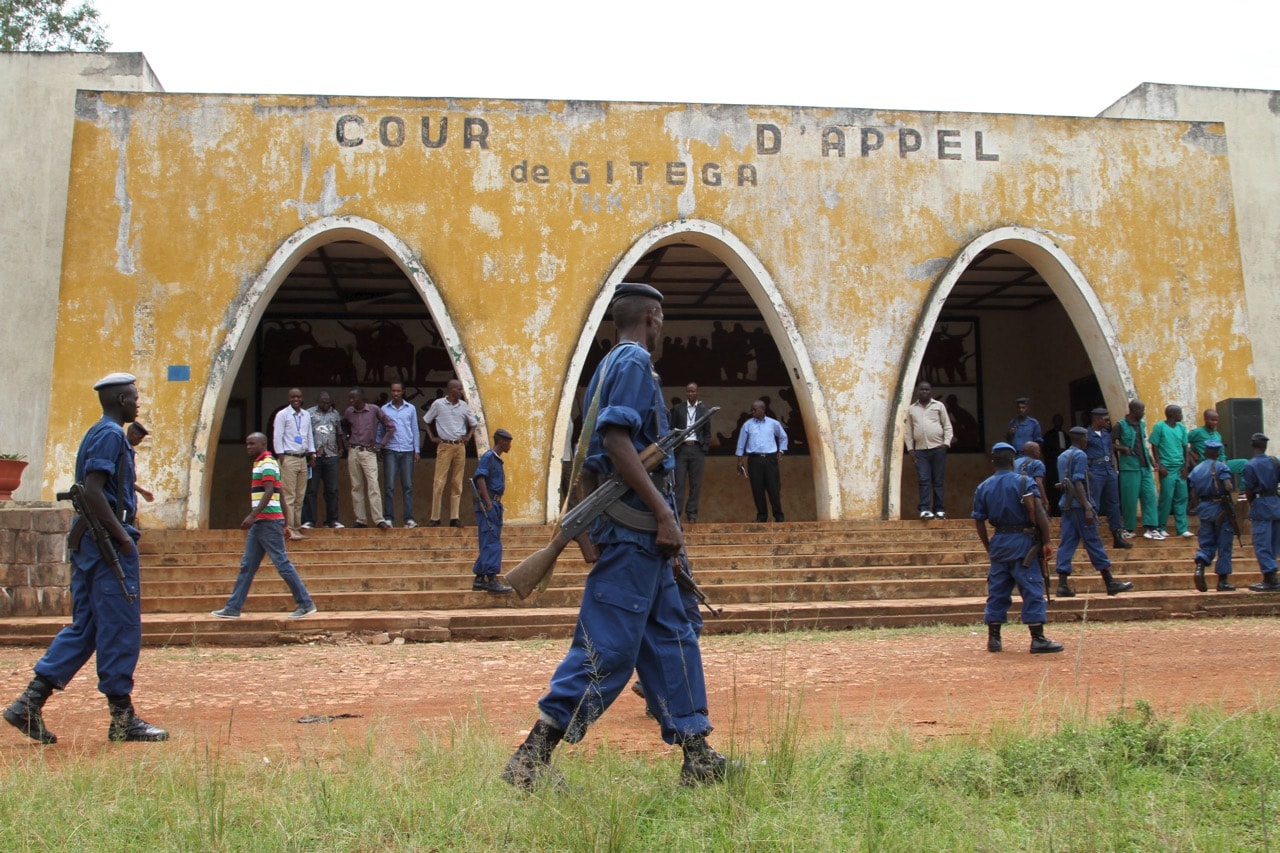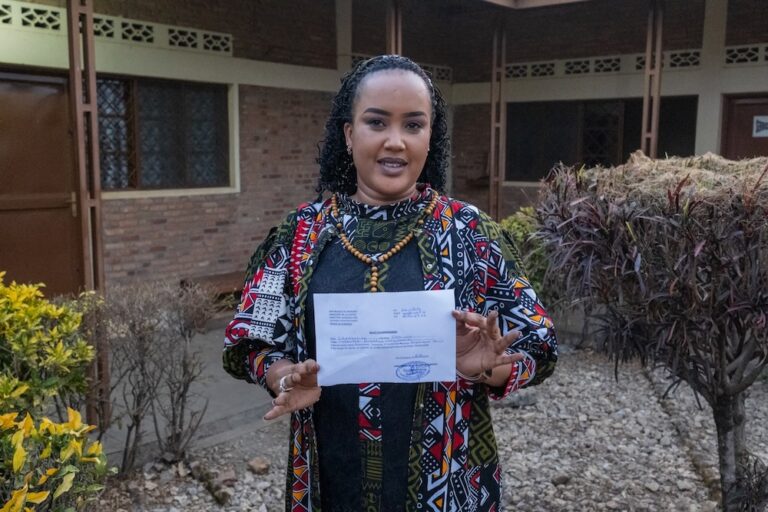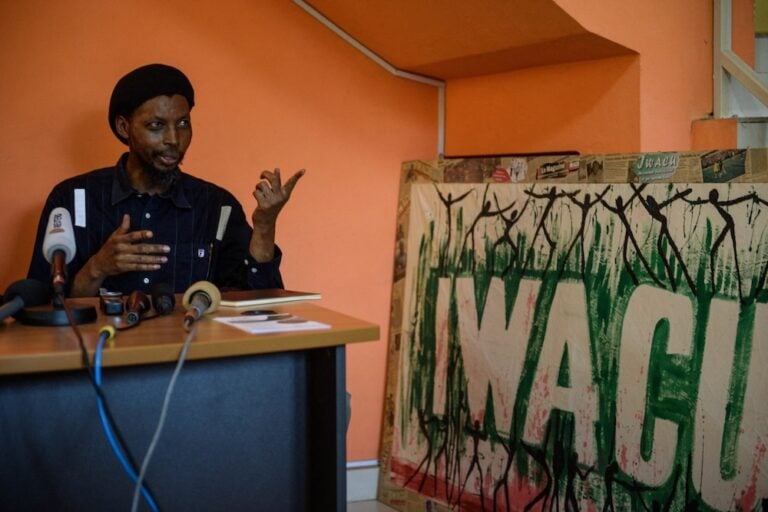A reporter for the independent news website Iwacu, reporter Jean Bigirimana left his home in Bujumbura on the morning of 22 July 2016 to meet a contact in Bugarama. He told his wife he would be back for lunch. She never saw him again.
This statement was originally published on rsf.org on 21 July 2017.
On the eve of the first anniversary of reporter Jean Bigirimana’s disappearance, Reporters Without Borders (RSF) calls on the Burundian authorities to release the findings of the investigation they promised last August and to do everything possible to establish what happened to this journalist.
A reporter for the independent news website Iwacu, Bigirimana left his home in Bujumbura on the morning of 22 July 2016 to meet a contact in Bugarama, a small locality about 45 km to the east in Muramvya province. He told his wife he would be back for lunch. She never saw him again.
Bigirimana arrived in Muramvya, where several witnesses say they saw him being arrested by members of the National Intelligence Service (SNR). Policemen in Muramvya told friends of Bigirimana that they saw him being thrown, bound, into the back of a vehicle containing the chief of the SNR’s Muramvya office. The SNR initially acknowledged holding Bigirimana but later retracted.
Suppressing the truth
After seeing no sign of any police search for Bigirimana, his Iwacu colleagues decided to conduct their own investigation. Despite police attempts to intimidate them, they found two bodies in a ravine a few days later. The bodies were bloated by exposure to water and one was headless.
When summoned for identification, Bigirimana’s wife found herself alone in a room, surrounded by policemen, being asked to say whether a naked, headless body that had been immersed in water for several days was her husband. She tried to identify the body by its feet but failed.
The two bodies were then quickly buried, without any DNA test or any other forensic examination.
Iwacu registered as an interested civil party in the case and filed a formal complaint against persons unknown in August 2016. Trial International, an NGO that combats impunity, referred the case to the United Nations Working Group on Enforced or Involuntary Disappearances.
Public pressure finally forced the authorities to react. In August 2016, police spokesman Pierre Nkurikiye announced on Twitter that the Muramvya prosecutor’s office had opened an investigation into Bigirimana’s disappearance.
But, after that terse announcement, there was no sign of any real investigation. According to the information gathered by RSF, the police never questioned either Bigirimana’s colleagues or the people who witnessed his arrest.
When reached by RSF, the police spokesmen said all questions should be addressed to the judicial authorities. But neither Muramvya’s prosecutor nor the spokesman of the Muramvya prosecutor’s office responded to RSF’s queries.
“It is high time for this investigation to be completed so that we can finally find out what happened to Jean Bigirimana,” said Clea Kahn-Sriber, the head of RSF’s Africa desk. “Regardless of who was responsible, all possible light must be shed on this case in order to end the impunity that just reinforces the climate of terror, not only for journalists but for all Burundians. It seems that the Burundian authorities have not yet turned their words into actions. This high-profile case offers the Burundian government – which often complains of being the victim of international meddling – the opportunity to carry out an investigation in a completely sovereign manner.”
The case continues to be a sensitive issue in Burundi. Bigirimana’s wife, who has never stopped demanding to know the truth, has been the target of repeated threats. On 23 June, she found a printed message outside her door threatening her and telling her to retract everything she has said about her husband’s disappearance.
She took the message to the local police station but the police have taken no steps to protect her or investigate the threats. A few days later, the national police spokesman claimed that he had not been told about the threats.
RSF launched a petition last year calling for an investigation into Bigirimana’s disappearance. It was signed by more than 11,000 people.
Burundi has fallen 15 places in RSF’s World Press Freedom Index since the start of the ongoing political crisis in 2015 and is now ranked 156th out of 180 countries. The media freedom situation there is now categorized as “very bad.”



